Charles Pakana (Victorian Aboriginal News):
Joining me today on the Referendum 23 Tapes podcast is the CEO of the Taungurung Land & Waters Council, Matthew Burns. Matthew, thanks for joining me on the podcast today.
Matthew Burns (CEO, Taungurung Land and Waters Council):
Thanks, Charles.
Charles:
Matthew it was earlier this year, somewhere around about March, that Taungurung actually came out formally endorsing a Yes vote and supporting the Uluru State from the heart, but more particularly supporting a yes for the Voice to Parliament. What was involved in achieving that? Because obviously you’re not going to get 100% support from within your Taungurung community.
Matthew:
Yeah. Look, you’re never going to get 100% community support by anything that you do. But how we go about it is Taungurung have these quarterly meetings, get togethers to discuss things that are outside of the things that the corporation already do and already have authority from community to do because there are a lot of outside pressures, outside questions, outside things that are occurring in the world that we as traditional owners to country need to be across and community need to be able to direct us. So we’ve had conversations around January 26th, we’ve had conversations around the voice. We’ve had conversations around treaty and all the things that are coming. So that’s the space to have those conversations. So we had another quarterly meeting in March, early this year, where we had a really exciting hand back of an area of country with significant rock art and a great place of connection for Taungurung community.
And at that community get together, there was the discussion around the voice and how do we feel about the voice? And look, there were some kind of opposing views, but overwhelmingly the community thought that the reason why despite great amounts of steps still need to come in Victoria. But the reason for the progress that we’ve been made, it’s because of decades of advocacy in Victoria-
Charles:
Sure.
Matthew:
… Step after step after step to get to where we are now, which is starting to discuss treaty negotiations. We’ve got the Yoorrook commission that’s happened as well. And that’s because of the voice of community, but also the work that’s been done over the years. And the overwhelming view from Taungurung community was that we need to enable other parts of country further north from us to be able to start with that voice, to be able to take those steps forward and be able to emulate maybe some of the work, the hard work, that’s been done for decades and decades in Victoria.
Charles:
Do you see any advantages of the voice specifically for the Taungurung people or is it a bit more altruistic?We’re sort of doing a national initiative here rather than a very self-centered initiative.
Matthew:
Yeah. Look for mine, but also for the community, it was more around being a bit more altruistic, as you say, being a bit more wanting to enable other mob to have that voice that don’t have that voice at this point in time. Obviously in Victoria there is the First Peoples’ Assembly. Taungurung have played a role through Marcus Stewart and then myself now as representative. And we’ve had a role as Taungurung community in Victoria that have really shaped through community leaders some of the direction in Victoria. And yeah, it was really altruistic community. We’re going, ‘look, we’ve got these processes. It’s been the hard work that’s been done over decades and we need to enable or endorse a structure that will enable voice from across the country’.
Charles:
One of the great things that Taungurung, like many other of the traditional owner groups across Victoria and indeed Australia has done, is actually develop initiatives which have been to really redress some of the wrongs that have been inflicted upon country, the flora and fauna since colonization. And I know one of the ones that we’ve spoken about with your mob before is the game management strategy. And I know there are quite a few others. Do you believe that the voice, rather than taking things from a deficit model perspective, which so many commentators talk about, but it can actually be implemented as a positive thing? In other words, getting some of these strategies up to the federal government?
Matthew:
Yeah. I think the short answer is yes. I mean, Taungurung and Taungurung leaders who work within the corporation as well have been actively involved in the development of the game management strategy, the cultural and management strategy, the cultural fire strategy. And those things recognize knowledge, recognize practice, and recognize that there’s a pathway to be able to implement that knowledge and practice back on country again. For Taungurung we believe, and other traditional owners of course, believe that it’s our obligation and responsibility to care for country. And we are working really positively and trying to work positively with a broader community in order to help them understand our roles, our obligation, our obligation to them as community as well that live on Taungurung country and how we need to be responsible for country and therefore with those responsibilities we need certain kind of authorities to be able to manage country the way that we want to do.
And instead of I guess going from it’s our rights, you’re horrible, these things have happened to us and give us our land rights back, we’re actually thinking more about our obligations to country, our responsibilities to country, and how can we practically work with the broader community as well as the Taungurung community to rightfully place us back on country and responsible for the decisions that happen on country and the cultural land management strategy, the game management strategy and other things enable us to do that. But also the broader community on Taungurung country enable us to do that by learning about our obligations, our responsibilities. The fact that we aren’t scary, the fact that what you as a broader community member want for your forests, your parks and everything else is exactly what we want for country and for our community as well. And if we can kind of see eye to eye that we’re not a threat, but actually we’re an asset and that asset is going to be enabling of cultural fire, the active management of country again, then it’s a real positive.
And we’ve done it in different areas so far. So in the very near future, we hope to have an announcement from the Environment Minister Stitt in relation to the Strathbogie Ranges. There’s multiple tenure all over that area and we’ve been advocating as Taungurung and as a couple of other traditional owner groups as well in the creation of the Public Land Act. There’s this new public land act that’s going to be put together. It’s an amalgamation of all the Crown Land kind of legislation into the new Public Land Act. And Jaara, Gunaikurnai and Taungurung have been working really closely together to create a new public land tenure category, and that is Cultural Reserve. And the Strathbogie Ranges is one of those areas that we hope that’s going to be the first cultural reserve under the new Public Land Act that’s going to be released in 2025.
And the work that we did to actually get buy-in was actually with the community, the Save Our Forest Group, the Euroa Environmental Group, and others to get them to buy into the vision of what we’re trying to achieve as traditional owners in caring for country. And their advocacy for us as well was one of those real driving forces for the government to start to listen to the fact that not only is it traditional owners saying that we want to take on that responsibility, the broader community had our back in wanting to enable that. And that’s a very long answer, but when you talk about those positive things going to the voice-
Charles:
Sure.
Matthew:
… The fact that we’ve got the broader community buy-in into the vision of what we’re trying to achieve, that is really powerful.
Charles:
Do you believe that traditional owner groups such as the Gunaikurnai and the Jaara and yourself with these strategies and some of the other groups, do you really see that you will be advocating for those to go well beyond the state government and actually go through the local and regional groups up to the National Voice? Should we get that Yes Vote on the 14th of October and actually have that shared right across Australia? Because it’s all about policies and the policies aren’t always about, as I mentioned before there’s deficit model perspective, but land management, game management. So how would you be advocating for those to get up there? Would that be a priority for Taungurung?
Matthew:
Look, I think advocating is an interesting word. Supporting it to be going up because advocating for it to be tabled, but ultimately it’s up to all traditional owners to decide how they want to play their role on country, of course. But examples of how things have been done in different parts of Australia is always got to be valuable. And I think the work that’s been done in Victoria to enable traditional owner voice for country, historically western colonized countries not only in Australia, seem to want to control land and to manage land rather than letting country speak for itself. And as traditional owners being able to interpret that voice in order to create and manage healthy country. And that’s something that we’re trying to impart to the reciprocity of traditional owners and people to country and making sure what you take, you must give back to country to ensure that it continues to provide for you for generations to come. And that’s the journey we are on, we’re on a long journey. The health of Taungurung country, for example, and all the forests that exist on Taungurung country where we’ve got a really long decades and decades generations of time before we can get it back to a healthy state. But that is our pathway.
Charles:
Taungurung has been through a fair bit of work in trying to get, or in achieving, that support for the voice to parliament and a Yes Vote. Should it not get up on the 15th of October, what happens on the 16th of October, that first day back at work after a No Vote, if that does occur?
Matthew:
It’s interesting that I’ll quote Marcus Stewart and say that for everyone else, they’ll wake up, walk their dog, have their coffee, and nothing will change. But for traditional owners, Aboriginal community across Australia, I think that it’ll be a continued denial of recognition, traditional owner voice. And I think it’s a generational thing for me. I think if this doesn’t get voted up, then another generation will go by where the voice of traditional owners, Aboriginal people. And what you say about deficit, we’re talking about closing the gap and everything else. But we’re also talking about the responsibilities, the great things that can come from First Nations communities across Australia and the value that they bring to country, the value that they bring to the broader population. And that’ll be a loss for everyone.
Charles:
Regardless of what the outcome is going to be. There’s obviously been a lot of talk within community, a lot of debate within community right across Australia. Have there been any positives already for you and for the Taungurung as a result of this ongoing debate since the referendum was announced?
Matthew:
Positives. So look, I think it’s always good to have conversations-
Charles:
Or maybe impacts, let’s put it that way.
Matthew:
Look, I wouldn’t say that there’s been impacts. As I said, there are a couple of people, and I say a couple of people that I know that are not supporting the voice. They’ve got a view that it’s going to take sovereignty away from traditional owner groups, et cetera.
Charles:
Oh yeah, [inaudible 00:10:49] on that one.
Matthew:
And when you explain to them, at the end of the day, the government make policies that directly affect First Nations people are irrelevant of whether you feel like you are a sovereign individual or not. The fact of the matter is there are policies and decisions that are made from a federal government that greatly impact, detrimentally impact, First Nations community. Whether that be through land rights, health, wellbeing, et cetera. And the fact of the matter is it doesn’t say anything about taking sovereignty away from First Nations people, it’s just saying that there’s a voice there. But everyone’s entitled to their opinion of course. But as I said, the overwhelming community felt really comfortable around where we are. The fact of the matter is that in Victoria, we are written into the Constitution as Aboriginal people, yet we’re negotiating treaty. We’ve got a truth commission that’s happening right now as well. So it doesn’t seem to be a barrier to the work that we’re doing as traditional owners in the state of Victoria. Look, anything that promotes conversation, anything that promotes the opportunity for community to come together and debate and come to a clearer understanding of where we are and how we’re going to going to move forward can be a positive thing of course.
Charles:
You’re in a little town of Broadford, north of Melbourne, about an hour north of Melbourne. What’s the general feeling within the broader community? Because when you’ve been saying community, you’ve been talking about the Taungurung community up here. What’s the feeling you’ve got from the general community here?
Matthew:
Look, it’s always hard to tell because you’re often preaching to the converted, for the ones that want to come and support and be a part of the different sessions that have been held. Some Taungurung leaders and Helen Haines had some sessions in Mansfield and Alexandra last week that was really overwhelming support. But as I said, I feel like you’re always got to be preaching to the converted. But what I’ve been heartened by is the yes signs that when I drive through Taungurung Country on Saturday, I was up in Acheron, Buxton. We were up the Nyagaroon property. And I would’ve counted probably 20 signs on the way from Alexandra to Buxton saying, Vote Yes. And I think that gives you some heart as well that there are a good proportion of people living on Taungurung country that are wanting to see positive outcomes for First Nations people, which is great. Not buying into the deficit conversation as well.
Charles:
Matthew Burns, thanks so much indeed.
Matthew:
Thank you.


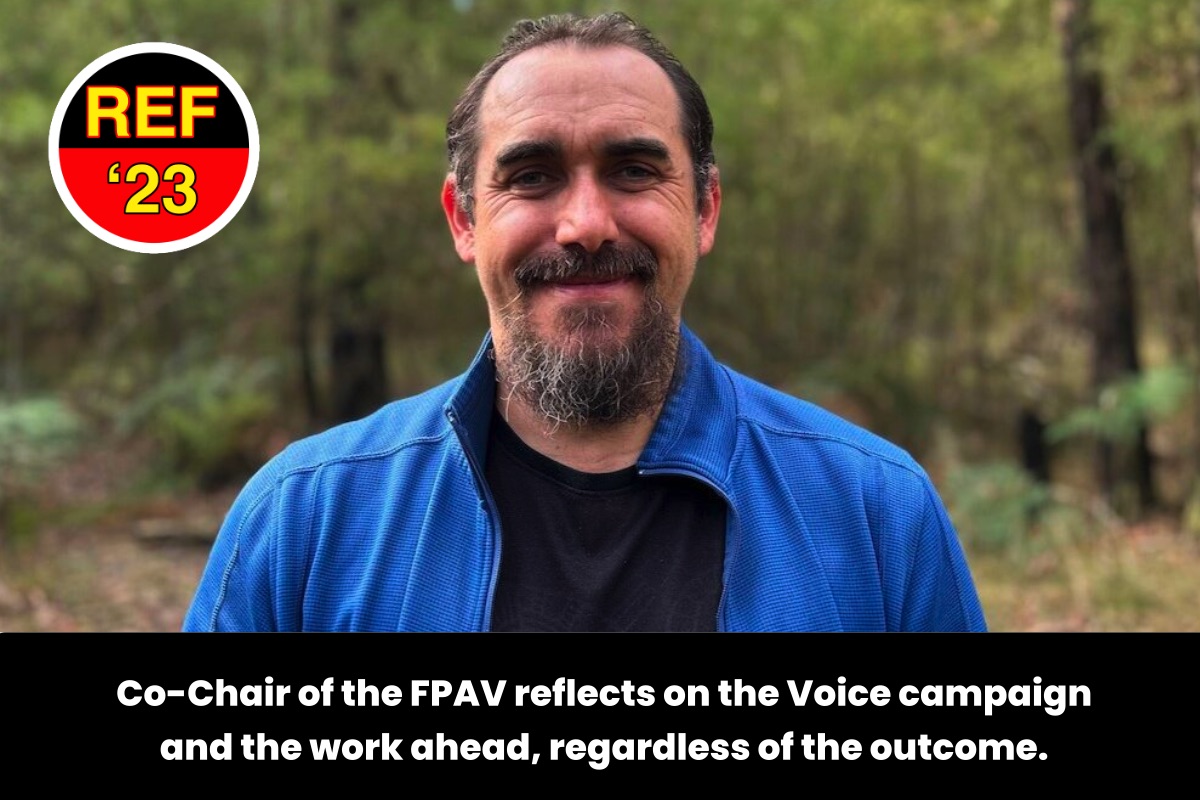
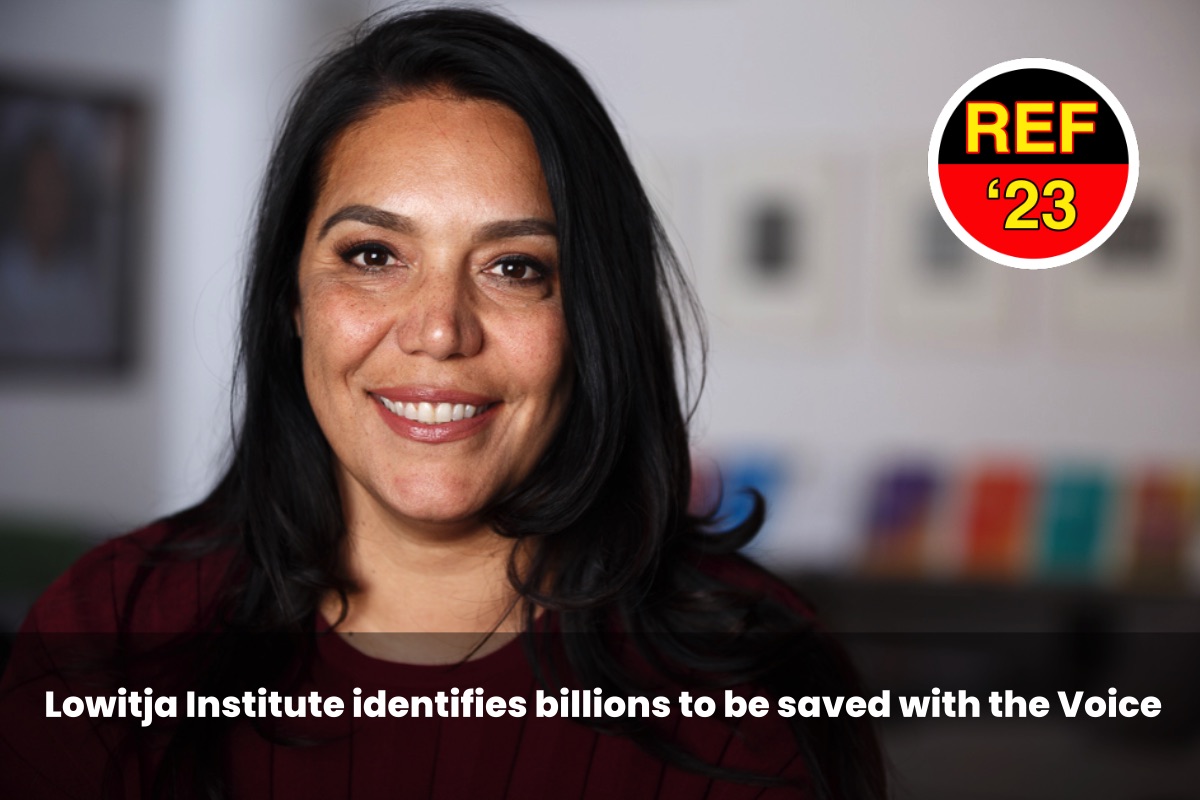
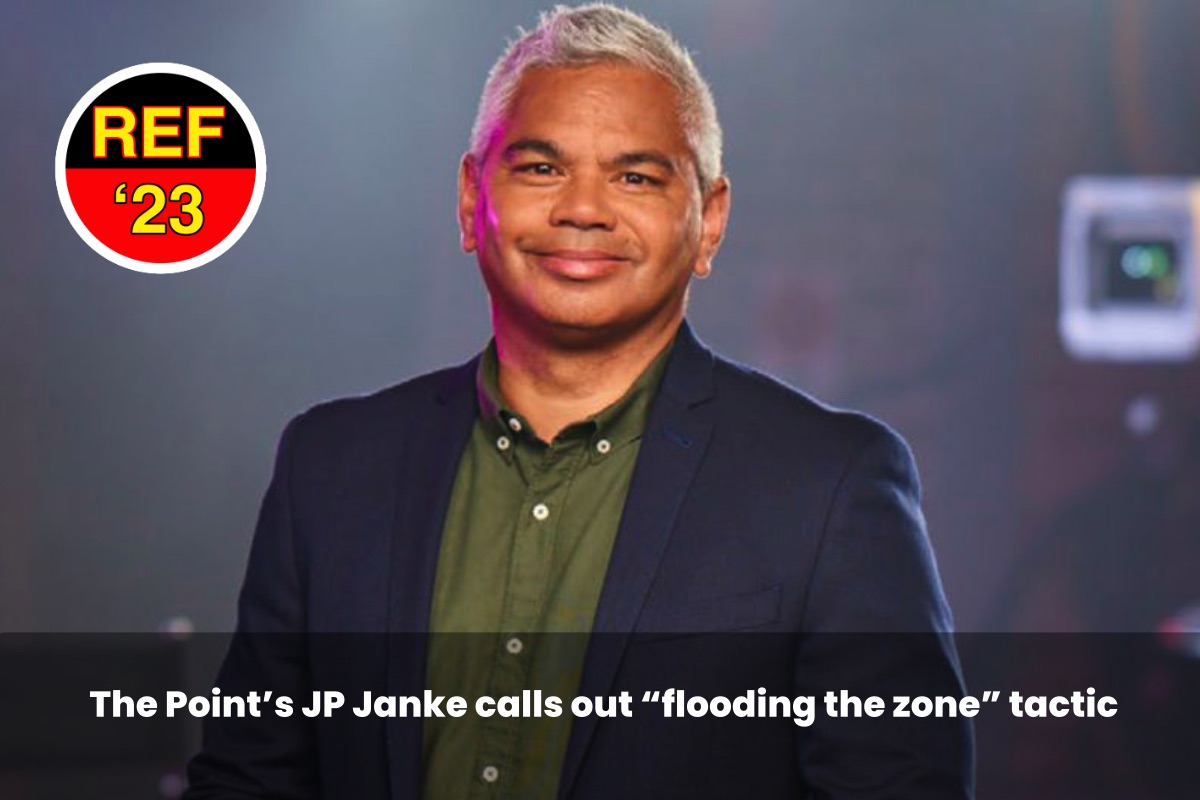
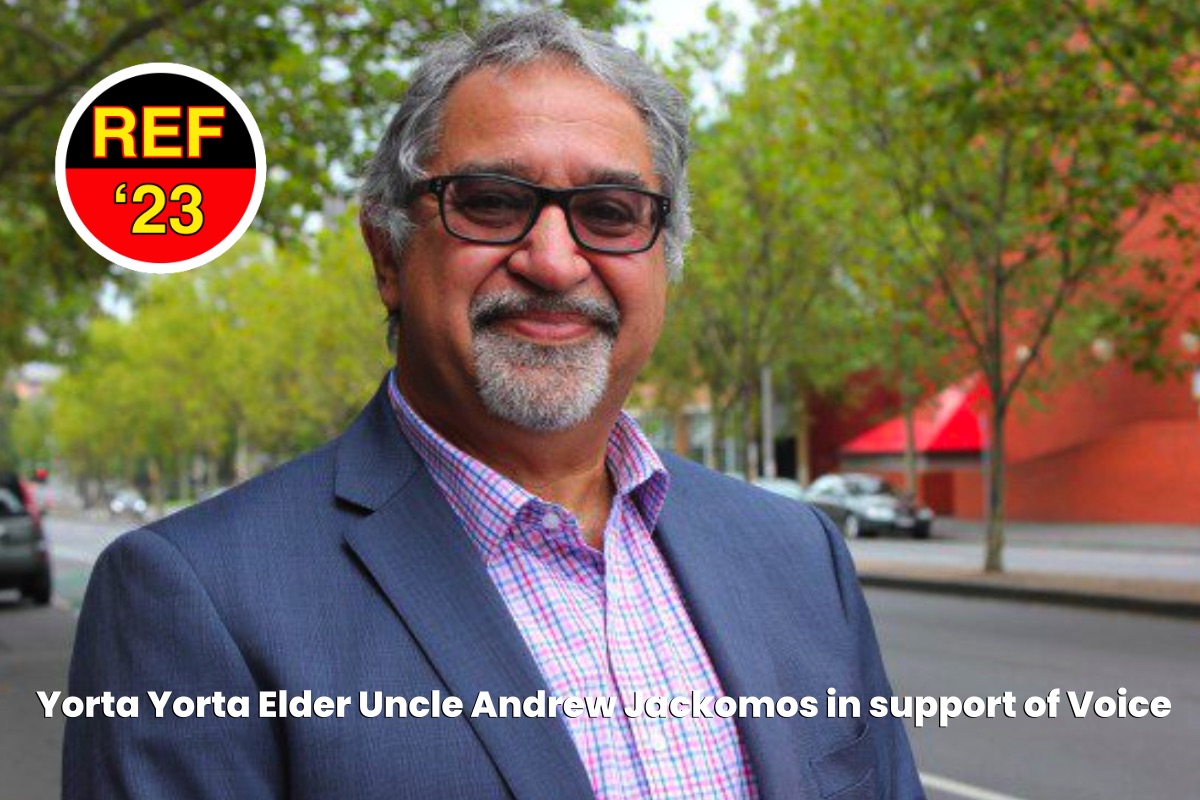
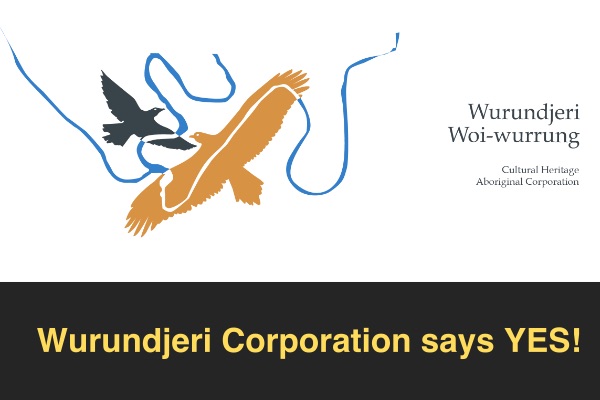

0 Comments